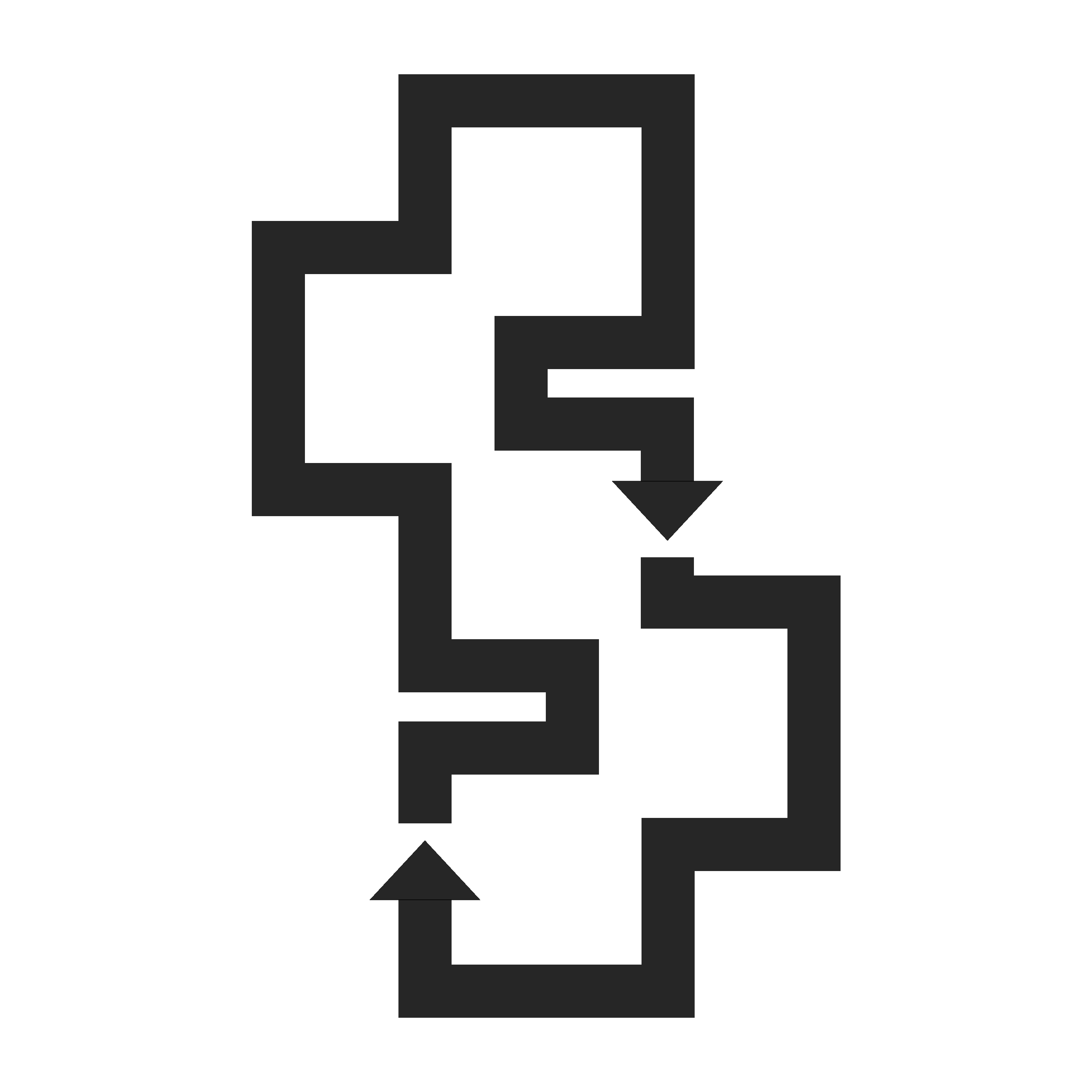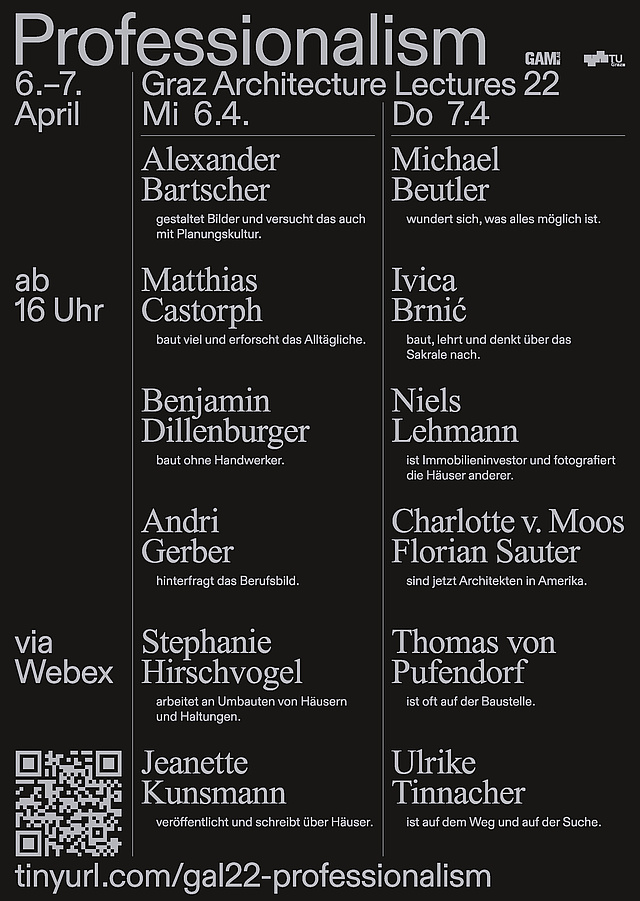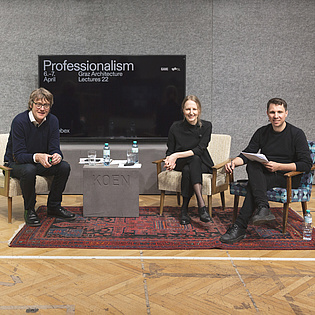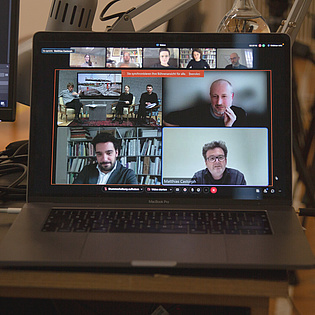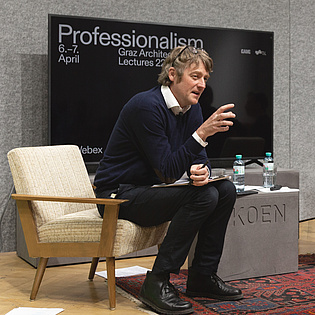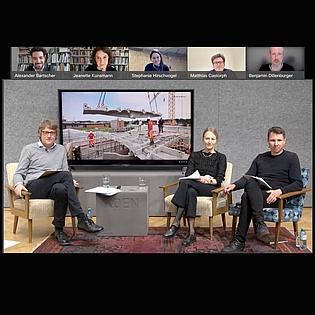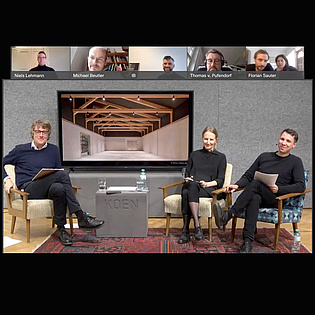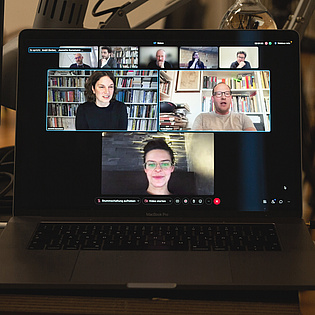This year’s Graz Architecture Lectures, which were held virtually from April 6th to April 7th, were dedicated to the topic of “professionalism” and in particular to the question of the different levels of meaning that lie behind the notion of professionalism in the complex field of architecture. A total of twelve speakers from different sub-disciplines discussed areas of tension between terms such as profession, professionalism, and professionalization, perfection and dilettantism and their meaning in different professional and cultural contexts.
Alexander Bartscher, who opened the lecture series, raised the importance of digital architectural visualization and the further differentiation of this sub-discipline in new markets. Afterwards, Matthias Castorph, in a very personal statement, argued against a polarization and for a unification of the concepts of profession and professionalism, as well as for a cooperative way of working in real-life construction practice beyond specialist discourses. Benjamin Dillenburger spoke about professional paths which lie between research and practice, and reported on his handling of new digital instruments in research-led practice, which he illustrated by means of his “Digital Grotesque” project. Andri Gerber took a historical look at the occupational profile, e.g. referring to the less-known architect Ludwig Hoffmann and his important role as a bureaucratic figure of the 19th and 20th century, thus demonstrating the historical change within the profession, e.g. the transition from public and state-owned to private, independent agency and responsibility. Stephanie Hirschvogel’s position identified architecture as a holistic design mandate, in which perfection, subversion, and transformation are important components. In her talk, architecture journalist Jeanette Kunsmann highlighted the complexity that professional writing about architecture requires and also addressed the importance of appropriate tools and necessary distance from one’s own work.
The second day of lectures began with Michael Beutler’s lecture about the similarities and ambivalences of artists and architects. He also raised the question of the connection between personal drive and professionalism. From the perspective of real estate development, Niels Lehmann used three concrete construction projects to illustrate how space and cost optimization as well as non-standard usage concepts can succeed. Ivica Brnić gave insights into his work as a researcher, lecturer, and head of an architecture office, and addressed the need to distribute the capacity to act within the collective as a prerequisite for professional, cooperate responsibility. Charlotte von Moos and Florian Sauter reported on the cultural differences of the profession between the USA and Switzerland and defended the significance of architecture as a cultural practice, but also of incalculable factors such as happy accidents in the design process. From the construction management point of view, Thomas von Pufendorf, approaching the notion of professionalism from the perspective of construction management, emphasized the need for regular professional exchange within the network of different professionals, including a concise presentation of processes, project phases, and deadlines. For Ulrike Tinnacher, too, regular communication and intensive exchange between architects and craftsmen on the construction site is a significant factor in professional practice. Her personal approach is derived from her experience as a freelance architect on construction sites in Austria and Switzerland.
The live-event was held in the KOEN studio and hosted by Alexander Lehnerer (Institute of Spatial Design), Florian Summa (Integral Architecture) and Petra Eckhard (GAM-Lab). Anne Femmer (Integral Architecture) and Julian Müller (Design in Existing Structures and Architectural Heritage Protection) acted as co-moderators via Webex. The discussion will be continued in the next issue of Graz Architecture Magazine devoted to the theme “Professionalism.” Abstracts can be submitted to gam@tugraz.at until June 12th, 2022.
Petra Eckhard
Concept
Anne Femmer, Florian Summa
Institute of Design and Building Typology | Integral Architecture
Alex Lehnerer
Institute of Spatial Design
